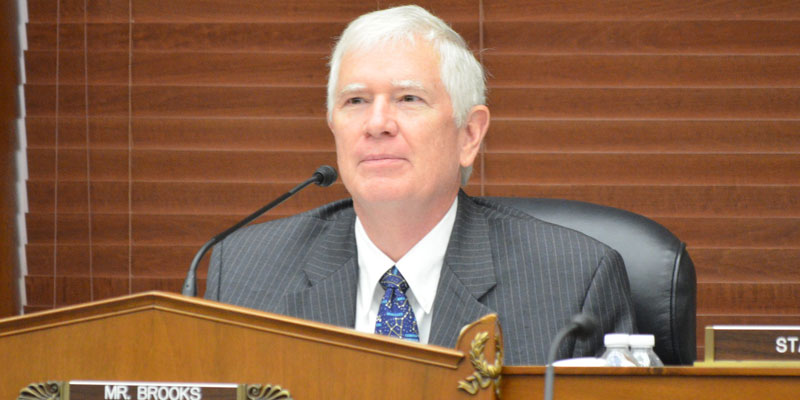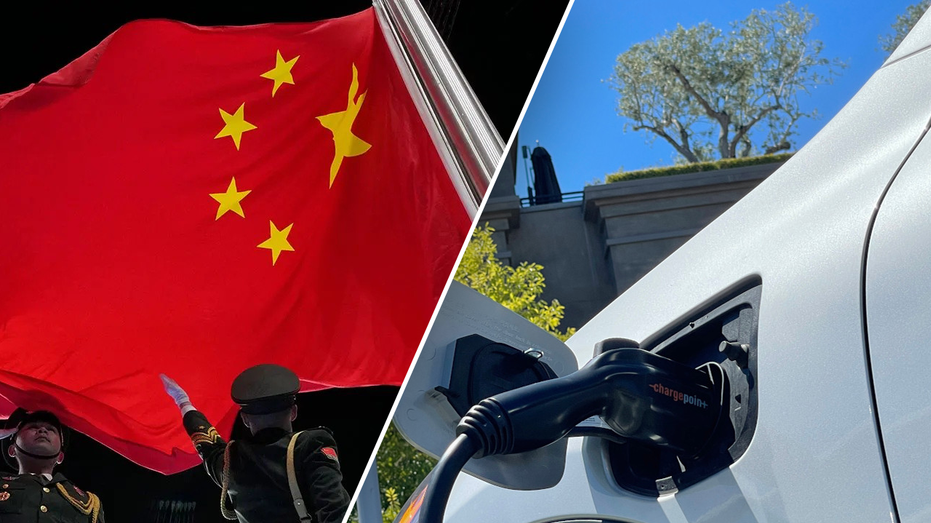Congressman Mo Brooks (R-Huntsville), during a House Science, Space, and Technology Committee hearing entitled “Losing Ground: U.S. Competitiveness in Critical Technologies,” made clear America’s need to maintain technological superiority as China advances.
Witnesses who took part in the hearing included: Dr. Diane Souvaine, chair of the National Science Board; Dr. Eric Schmidt, founder of Schmidt Futures; and Dr. Chaouki Abdallah, executive vice president for Research at the Georgia Institute of Technology.
“China seeks to manage America’s decline, and so there is a significant long-term risk there,” Brooks noted during the hearing. “Certainly, their military prowess is increasing. The challenges associated with their claims to the South China Sea are troubling for that region of the world. And, to make matters even worse, United States-Chinese trade deficit, China is the worst trading partner we have. Our trade deficit there is about six times worse as the second-worst country on the planet.”
Watch:
The full transcript of Brooks’ questioning as follows:
BROOKS: Thank you Madam Chair. My comments and questions are directed primarily at Dr. Schmidt, but if there is time remaining after he responds, then Dr. Souvaine or Dr. Abdullah feel free to join in as you wish. I’m looking at Dr. Schmidt’s written testimony, and I’m going to read some quotes from it. Quote, “The United States now faces an economic and military competitor in China that is aggressively trying to close our lead in emerging technologies.” Quote, “China’s well-documented espionage, intellectual property theft, and talent recruitment programs are disadvantaging our companies, our universities, and our military. The findings of a recent Senate investigation into China’s methods to unfairly exploit United States taxpayer-funded research for its own benefit is a case in point.” Quote, “My concern is that China tries to fulfill a vision of high-tech authoritarianism. That governing model will appeal to other governments searching for a foundation on which to exercise their power.” And when I think of that high-tech authoritarianism, I can’t help but think of George Orwell1984, Fahrenheit 451, Animal Farm, and others. Then, Dr. Schmidt, you go on to add, “We should not only compete with China, but also work with them.” Now, as I think of all your comments put together, I serve on the Armed Services Committee, and we have plenty of briefings, classified and unclassified. I can’t go into the classified part, but the gist of it is that China seeks to manage America’s decline, and so there is a significant long-term risk there. Certainly their military prowess is increasing. The challenges associated with their claims to the South China Sea are troubling for that region of the world. And, to make matters even worse, United States-Chinese trade deficit, China is the worst trading partner we have. Our trade deficit there is about six times worse as the second-worst country on the planet. So, now to the questions. How do we protect United States interests with respect to this technology? That’s part of it, and can you share some examples, as much as you can in this open setting, of where you think there are opportunities to cooperate that would benefit the United States and areas where we should not cooperate for economic and security reasons?SCHMIDT: So, thank you for that. So, the competition with China is going to be the defining competition for the next 10 or 20 years, and the rise and the peaceful rise of China is in our interest for obvious reasons. So, it seems to me that we have to come up with a language and a way of dealing with them. So, the first is I would like us to agree that America should win, and winning is defined as defining the key to technologies, inventing the future, driving the technology stack, and all of that kind of stuff. To the degree that Chinese technology or technologist can enable us to win on our terms I’m ok with it, but not unless it’s consistent with that. So, there are plenty of examples where you could imagine if Chinese technology were to dominate the globe with non-American values it would really hurts us. The most obvious would be imagine if the internet were invented by China with a complete surveillance architecture. Just imagine if we inherited that from China how different our experience as Americans would be today. So, it’s really important that we get these underlying technology platforms— of which the internet is an example that we have so far won at— to be popular and be successful globally. One way to think about China is that they have solved the problem of identity, mobile phone, electronic payment, and surveillance in a single device. And, my Chinese friends never use cash, but of course, everything they do is tracked. Now, this is very un-American. Now, imagine if that structure becomes the standard structure in all the BRI countries— the Belt and Road Initiative countries— of which there’s roughly 63. That becomes a huge, huge problem for us. It’s a market we can’t sell into, it strengthens their leadership and so forth and so on. We don’t have good answers as a country for this.
BROOKS: Dr. Abdullah or Dr. Souvaine in the time that remains would y’all like to add any additional comment?
SOUVAINE: I’d say briefly, certainly we need heightened vigilance as the information yesterday about the arrest of the prominent Harvard chemist suggests. Looking at conflict of commitment, conflict of interest, and when you do partnerships with the federal government and universities to do that. At the same time, as we think about competing with China, first of all it’s not just China, but it’s certainly a lot of it there, but we compete by being the best version of ourselves. We need to recognize and respect that China and other nations contribute to humanity’s knowledge and it’s a good thing. We also know from the SNE 2020 report that our researchers across this country are publishing many more collaborative papers, collaborating with international collaborators, and the single country that we collaborate with the most is also China. So, we need to understand that that’s important, but we need to be the best versions of ourselves. We need to promote openness while recognizing the balance between collaboration and security. We need to embrace competition, discovery, openness, fairness, immigration, international collaboration, curiosity-driven research, public education at all levels, our government university business ecosystem, but really do what Dr. Schmidt says. We need to be promoting our values because we’re at the table, we’re investing, we’re part of every discussion, and we continue to promote our version of what it means to be honest, open, transparent, and successful.
BROOKS: Thank you, Madam Chair.
Kyle Morris also contributes daily to Breitbart News. You can follow him on Twitter @RealKyleMorris.













